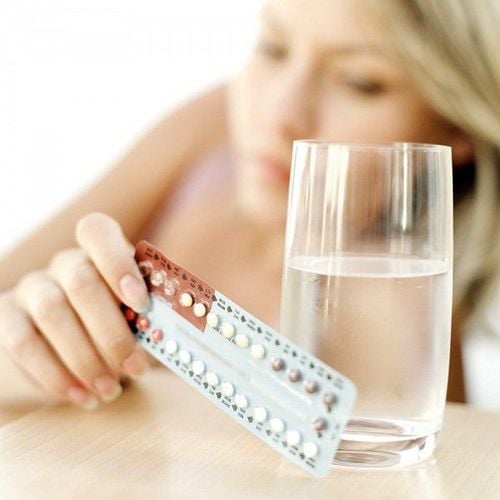This article was professionally consulted by Lai Thi Nguyet Hang, Specialist level 2, MD - Obstetrics and Gynecology Department - Vinmec International General Hospital Ha Long.
Menopause is a physiological transition experienced by all women; however, the age of onset varies, with some experiencing it prematurely and others later in life. Does late menopause have any health implications?
1. Is late menopause a medical condition?
Natural menopause is defined as 12 or more consecutive months without menstruation, excluding other physiological or pathological causes. The age of menopause typically ranges from 45 to 55 years old; however, not all women experience menopause within this range. Late menopause is defined as menopause occurring after age 55.
Late menopause is not a disease; It's simply the normal process of menopause happening later than usual. Women should not be overly concerned if others have already reached menopause while they continue to menstruate.

2. Causes of late menopause
The causes of late menopause are not yet fully understood. Many researchers indicate that in women with late menopause, the utilization of the ovarian follicular reserve may be particularly conservative, with a reduced rate of atresia of ovarian follicles. However, prolonged ovarian activity leading to late menopause can also be due to ovarian abnormalities; frequently involving hormone-secreting tumors.
3. Is late menopause beneficial?
A study by epidemiologists at the Davis University of Medicine (California, America) indicated that women experiencing late menopause have a reduced risk of cardiovascular disease and stroke, along with greater bone mineral density and a reduced incidence of osteoporosis compared to women with premature menopause.
Late-onset menopause is hypothesized to confer several health advantages for women. Consequently, many women hope for a later menopause:
- Prolonged fertility: Menopause means the loss of fertility because the ovaries have stopped functioning. If menopause is late, women will have an extended reproductive period. This is good news for those with infertility or later marriages.
- Enhanced Sexual Well-being: Women with delayed menopause often report enhanced sexual well-being attributed to sustained estrogen levels, which helps them maintain desire, vaginal lubrication, and lubrication during intercourse.
- Increased longevity for women: Research conducted at the University of California, San Diego indicates an association between delayed menopause and a reduced incidence of cardiovascular and musculoskeletal disorders, as well as increased longevity. This may be because estrogen levels are maintained, helping the body boost its resistance.
- Helping women stay younger longer: Menopause is considered a stage in the aging process of women; therefore, delayed menopause may correlate with a postponement of age-related changes. Maintaining female hormones will help them reduce wrinkles, hyperpigmentation, and the decline in physical form.
Because of these benefits, there are now hormone replacement therapies available to help women prolong the time before menopause. However, these medications are contraindicated without consulting a specialist for specific advice.

Vinmec International General Hospital currently offers a Pre-Menopausal Health Check and Consultation Package. Enrollees in this package will receive a comprehensive gynecological examination and consultation with a specialist in Obstetrics and Gynecology, including the following diagnostic evaluations:
- Gynecological consultation
- Gynecological and breast examination
- Transabdominal ultrasonography of the uterus and ovaries
- Collection of specimens for cervicovaginal cytology (Pap smear)
- Bilateral mammography
- Bone densitometry
- Additional investigations to detect pre-menopausal pathologies, if indicated.
To arrange an appointment, please call HOTLINE or make your reservation directly HERE. You may also download the MyVinmec app to schedule appointments faster and manage your reservations more conveniently.















